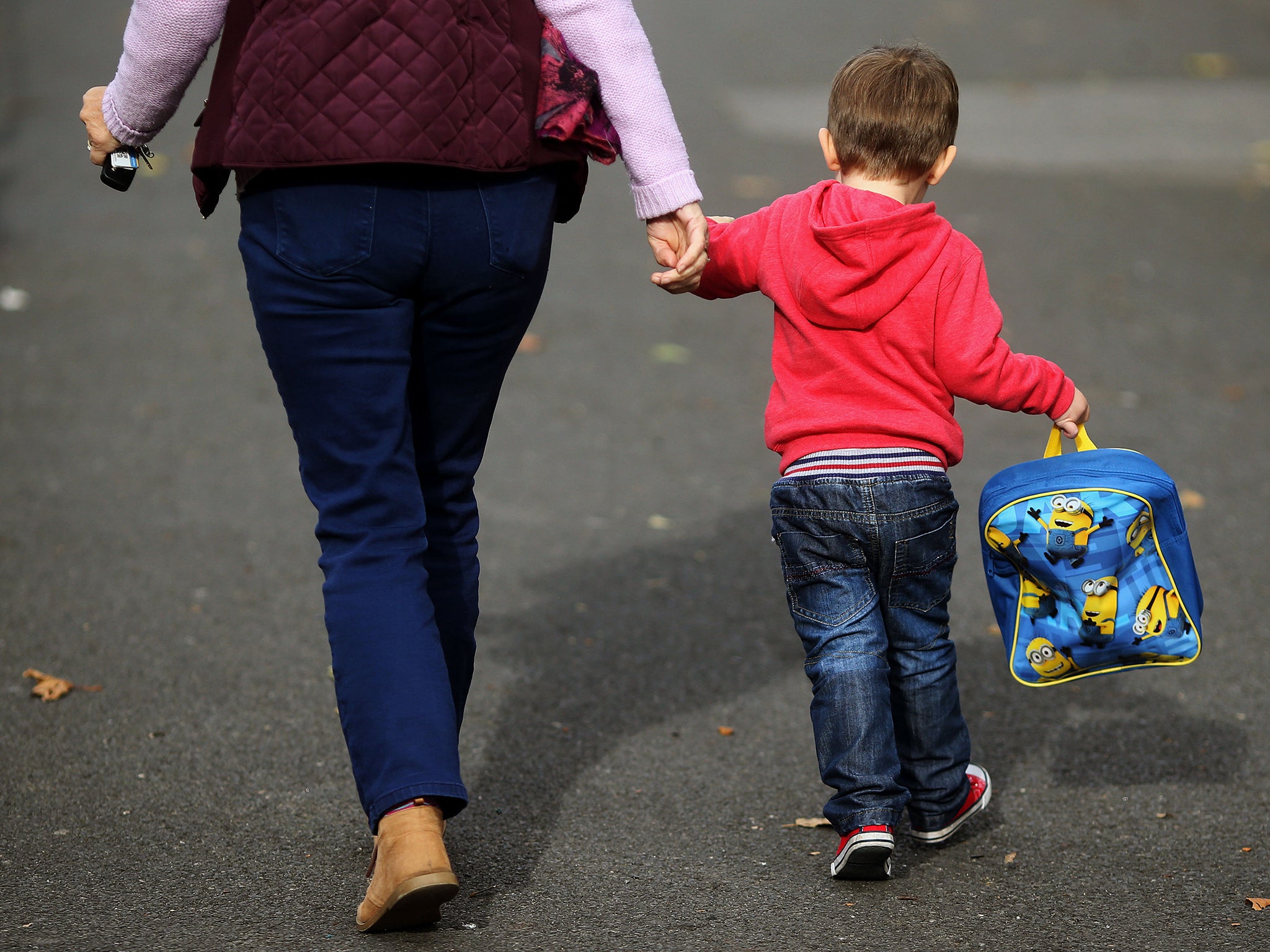Children from poorer families less likely to take up free pre-school place, study finds
'It is nonsensical that current government policy does not target funding where it is most needed'

Children from poorer backgrounds are a third less likely to take up free places in pre-school education, which can help boost their life chances, compared to one in six of their higher-income peers, research by London School of Economics (LSE) shows.
The largest gap in take-up between disadvantaged families and higher-income families are in areas of the country where early years provision is mostly in the private sector, researchers found.
Meanwhile, the gap is much smaller in areas where there are more Sure Start Children’s Centres or school nurseries – which do not charge parents additional fees for “extras”, the study found.
Author Dr Tammy Campbell said: “[It] suggests that extra fees – for example for registration or lunch – can act as a barrier for families who cannot afford large one-off or regular extra payments.”
“So it seems that part of the gap in access may be explained by the fact that ‘free’ early education is often not actually free, in practice,” she told The Independent.
Poor children who claim free school meals are 13 percentage points less likely to attend their full five terms of free pre-school education than children from higher-income families, the study finds.
In addition, families of children who speak English as an additional language were nearly three times more likely not to take up their full five terms as children who speak English at home.
A complicated market of providers across the country – as well as “non-transparent” waiting lists – can be “far from straightforward” for parents with fewer resources, Dr Campbell said.
The researchers said the findings were “concerning” as good quality nursery provision can make a difference in closing the gap between disadvantaged children and their more privileged peers.
Dr Campbell told The Independent: “There is evidence that genuinely good quality pre-school provision can help poorer children’s life chances, so ensuring that all children are able to access nursery places has an important part to play in promoting a more level playing field.”
Government reforms – such as the introduction of 30 funded hours a week for three and four-year-olds with working parents – could place more pressure on nurseries to charge for extras.
“Many more nurseries are not financially sustainable without charging parents extra,” Dr Campbell warned. “This may prevent even more poorer families from attending.”
Neil Leitch, chief executive of the Pre-school Learning Alliance, agreed that the “disparity of access” would get worse in light of the government’s 30 hours of free childcare offer.
He said: “We now have an absurd situation where a family in which parents have a household income of up to £200,000 would be eligible, while another family where a parent is studying or on a zero hours contract, and not earning enough to meet the minimum income, would not.”
Mr Leitch added: “There’s no doubt that children receiving a quality early years education are more likely to reach their full potential, and research clearly shows that attending an early years setting improves the likelihood of a child achieving higher GCSE grades and having better health outcomes later in life.
“It is nonsensical, then, that current government policy does not target funding where it is most needed. Instead tax-free childcare favours families who can afford to save, and 30 hours is open to parents on very high incomes, while availability to families on lower incomes is limited.”
Nadhim Zahawi, minister for children and families, said the government was “doing more than ever before to support parents with the cost of childcare”.
Since 2004, all three and four-year-olds have been allowed a free nursery place.
In 2010, the universal free childcare rose from 12.5 to 15 hours a week - and in 2013, free places were extended to two-year-olds from low-income families.
He added: “Those who aren’t eligible can also access a range of other benefits – for example parents who work a few hours a week may be eligible to claim back 85 per cent of their childcare costs through Universal Credit.
“This means that we will be spending around £6bn a year by 2020 to help make sure that every child, regardless of their background, gets the high quality childcare that they deserve.”
Last month, Ofsted boss Amanda Spielman highlighted the rising number of youngsters who lack basic hygiene and language skills when they turn up to school at the age of four.
Her comments came after education secretary Damian Hinds announced that the government would give parents advice on how to sing nursery rhymes and teach the alphabet to their pre-school children in a bid to close the gap in skills between disadvantaged pupils and their peers.
Subscribe to Independent Premium to bookmark this article
Want to bookmark your favourite articles and stories to read or reference later? Start your Independent Premium subscription today.

Join our commenting forum
Join thought-provoking conversations, follow other Independent readers and see their replies